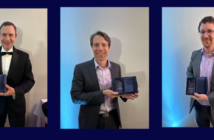An Open University (OU) PhD student has launched the first-ever research platform to capture the particular intersection of misogyny and racial oppression experienced by Black women online.
Joseph Kwarteng, a second-year PhD student in the OU’s Knowledge Media Institute (KMI), has launched Misogynoir Online, a website that invites Black women to share their stories of misogynoir by posting them on the platform.
The term ‘Misogynoir’ was coined in 2008 by Black feminist scholar Moya Bailey. It is used to describe the unique form of misogyny and racialised oppression of Black women.
Joseph launched Misogynoir Online the day before International Women’s Day (8 March 2022) – this year’s theme is ‘break the bias.’
Despite widespread banning and monitoring of hate speech on most social media platforms, it has been found that detection methods tend not to function as well when it is directed towards marginalised groups.
Joseph found that racial gaslighting (denying racism exists) and tone policing (a tactic used to dismiss an idea because the person expressing it appears to be angry, sad or frustrated) are just some of types of misogyny Black women specifically experience online.
He commented on how this particular issue can impact on Black women’s lives, and its prevalence:
“Many people are still unaware of misogynoir and how it affects Black women collectively, and when Black women speak up, tend to dismiss, or discredit their experiences. Misogynoir has a significant effect on Black women’s self-esteem and confidence and can increase the likelihood of anxiety and stress; that is how serious the problem is”
The site is planned to run from early March to June 2022, is designed to capture the anonymised accounts of Black women who have experienced misogynoir.
Joseph, whose background is in computer science, plans to use his data to create novel Artificial Intelligence detection tools to detect misogynoir online.
Joseph commented on how he hoped the research could be used to make positive change online:
“There are several automatic detection approaches for detecting hate speech, sexism, racism, as well as offensive and abusive language. To the best of my knowledge, there are presently no computational tools or resources that allow the automated detection of this form of hatred.
“My goal is to contribute to that by exploring experiences of misogynoir, understanding how it manifests online and identifying ways to mitigate it.”
Follow Misogynoir Online on Twitter
Read more about research at the Knowledge Media Institute



